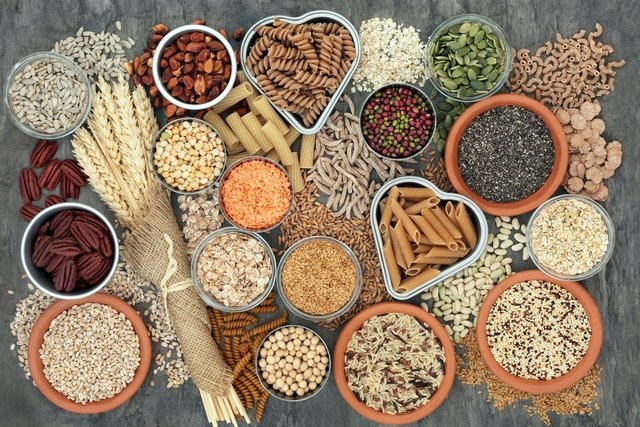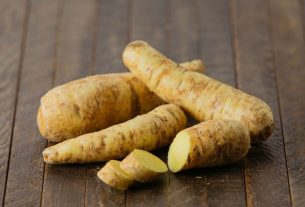Manganese is an essential mineral for the formation and strengthening of immune system cells, helping to fight viruses and bacteria, and thus preventing situations such as flu, colds and allergies.
Found mainly in foods of plant origin, such as spinach, legumes, nuts and some fruits, manganese also promotes wound healing, because it participates in the formation of collagen, a fundamental protein for supporting skin tissues.
The daily amounts of manganese that the body needs are very small and, therefore, deficiency of this mineral is very rare when a healthy and varied diet is maintained.

What is it for
Manganese has several health benefits, such as:
- Produce energy and nutrient metabolismas it participates in the metabolism of proteins, fats and carbohydrates, being necessary for all body functions;
- Keep bones healthy, because, along with other vitamins and minerals, manganese is necessary for the formation of bones and cartilage, helping to prevent osteoporosis;
- Regulate blood glucose levelsas manganese participates in carbohydrate metabolism, in addition to having an antioxidant effect, improving the functions of insulin, the hormone responsible for transporting glucose from the blood to the interior of cells;
- Prevent the emergence of cardiovascular diseases and cancer, since manganese has antioxidant activities, combating excess free radicals in the body;
- Strengthen the immune system, because manganese is used in the formation and strengthening of immune system cells, protecting the body against infections and flu;
- Promote healing, as it participates in the formation of collagen, a fundamental protein for supporting skin tissues;
- Maintain the proper functioning of the central nervous system, as manganese helps regulate the functioning of neurotransmitters and brain cells.
Furthermore, manganese is also important for blood clotting and is necessary for the absorption of vitamin B1 and vitamin E by the body.
List of foods rich in manganese
The following table contains the amount of manganese for every 100 g of food:
Manganese is also found in good quantities in green tea, black tea and spices such as pepper, cinnamon and turmeric.
Recommended quantity
The recommended daily amount of manganese varies depending on age and gender, as listed below:
- Babies aged 0 to 6 months: 0,003 mg;
- Babies aged 7 to 12 months: 0,6 mg;
- Boys and girls aged 1 to 3 years: 1,2 mg;
- Boys and girls aged 4 to 8: 1,5 mg;
- Boys aged 9 to 13: 1,9 mg;
- Boys aged 14 to 18: 2,2 mg;
- Girls aged 9 to 18: 1,6 mg;
- Men aged 19 and over: 2,3 mg;
- Women aged 19 and over: 1,8 mg;
- Pregnant women: 2 mg;
- Breastfeeding women: 2,6 mg.
It is important to remember that it is possible to obtain the recommended daily amounts of manganese naturally, through a varied and healthy diet.
When to use supplements
Manganese supplements can only be recommended in cases of deficiency, which can be found in the form of manganese salts and chelated manganese, in tablets or capsules.
However, intake of this supplement should not exceed 10 mg per day, due to its possible toxic effects. Therefore, the use of manganese supplements should only be done under the guidance of a doctor or nutritionist.
Manganese deficiency
Although it is rare, manganese deficiency can occur due to low intake of foods that are sources of this mineral and absorption problems, which can cause delayed growth in children, poor bone formation, weakness, glucose intolerance, blood clots and problems with skin.
Excess manganese
Excess manganese can only occur through excessive intake of supplements, which can cause symptoms such as tremors, loss of appetite, muscle loss, irritability, mood changes, depression and damage to the central nervous system, causing symptoms similar to Parkinson’s disease.
Bibliography
- NIH. Dietary Supplement Fact Sheets: manganese. Available at: <https://ods.od.nih.gov/factsheets/Manganese-Consumer/#h4>. Accessed on Jul 18, 2022
- Daiana Silva Avila, Robson Luiz Puntel, and Michael Aschner. Manganese in Health and Disease. National Library of medicine. Vol.13. 199–227, 2019
- NATIONAL INSTITUTE OF HEALTH – OFFICE OF DIETARY SYPLEMENTS. Nutrient Recommendations: Dietary Reference Intakes (DRI). 2011. Available at: <https://ods.od.nih.gov/HealthInformation/Dietary_Reference_Intakes.aspx>. Accessed on Jul 18, 2022
- OREGON STATE UNIVERSITY. Minerals: manganese. Available at: <https://lpi.oregonstate.edu/mic/minerals/manganese>. Accessed on Jul 18, 2022

Sign up for our newsletter and stay up to date with exclusive news
that can transform your routine!
Warning: Undefined array key "title" in /home/storelat/public_html/wp-content/plugins/link-whisper-premium/templates/frontend/related-posts.php on line 12
Warning: Undefined array key "title_tag" in /home/storelat/public_html/wp-content/plugins/link-whisper-premium/templates/frontend/related-posts.php on line 13




